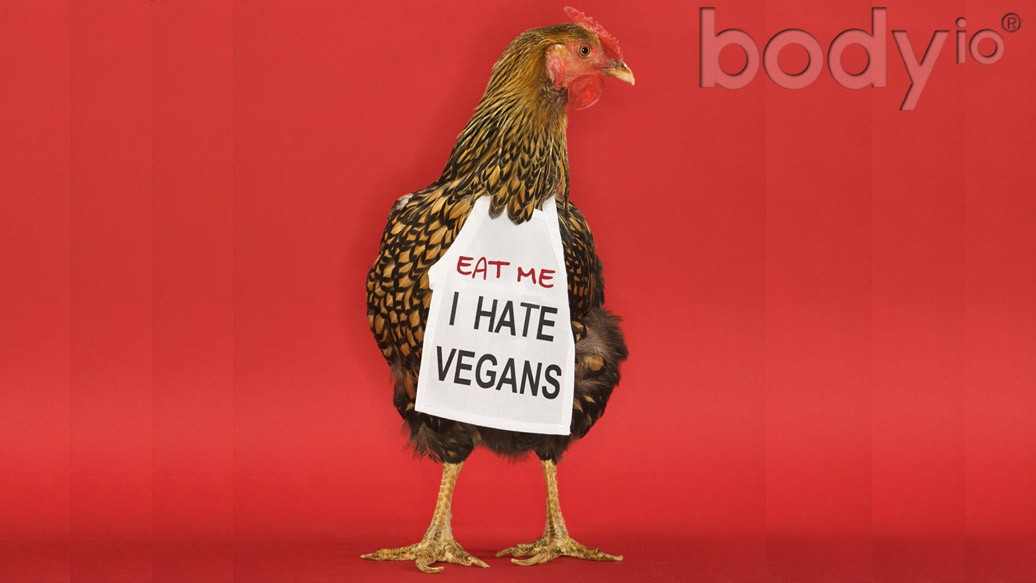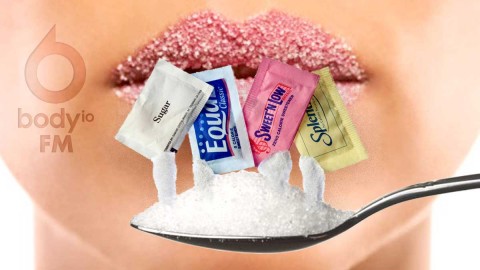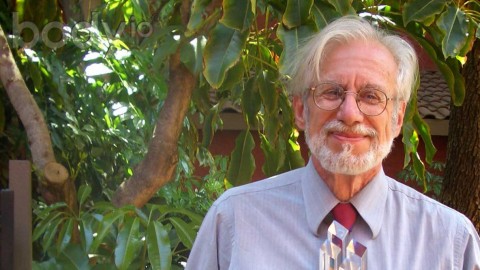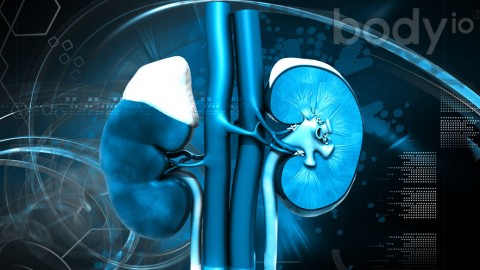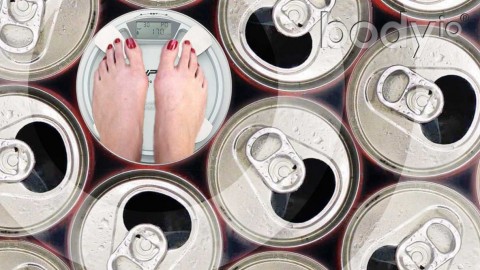From the archives:
H
ere’s how stupid shit happens. You go to your doctor for something benign—like acid reflux, or some other condition that’s annoying, but not necessarily life-threatening. You’re here at Body IO®, so you know what we do—and if you know about us, chances are you know about the Paleo movement and other dietary protocols that claim to stimulate massive fat loss, muscle gain, and good health.
Now, these all include meat and animal fat. Lots of it. Your doctor, however, tells you that the only way to be healthy and cure all your ailments—not just what you’re in his office to treat—is to swear off animal products and become a vegetarian or vegan. Seriously, they say this.
Your doctor may be a member of the Physicians Committee for Responsible Medicine. This organization seems to have two absolute criteria for membership: 1) Being vegan, and 2) Pushing a vegan lifestyle on patients regardless of the reasoning behind it. Dr. Joel Fuhrman is an excellent example of this, espousing the power of veganism despite looking for all the world, physically, like a sucked-out human wraith. Take a look. He’s frail, weak, and delicate—an absolute picture of good health.
The Physicians Committee for Responsible Medicine encourages “higher standards of ethics and effectiveness in research,” but what they mean by this isn’t what you think. It’s not better science they’re after. Rather, it’s poor science, so they can maintain the lie that a vegan lifestyle is healthy and that animal products are the devil. Paraphrasing here, members have said, during television interviews, that they “know the research doesn’t support a vegan lifestyle, per se, but we’re going to keep doing studies until we produce one that proves we’re right.”
This is the complete opposite of science. The perfect vegetarian meal? I’ll take a prime cut of steak that came from a vegetarian cow, and so should you.
Here are the simple facts:
1) Vegetarian diets cause a deficiency in vitamin B12 levels[1-2]. This doesn’t seem too important until you realize that vitamin B12 deficiency results in a condition called hyperhomocysteinemia[3-7], which is powerfully oxidative. I liken the effect on arterial tissue to running a cheese grater through the inside of your arteries, which readily explains the rise in stroke risk[8-10].
2) Vegans suffer from protein malabsorption and amino acid deficiencies[11-19], some of which can be health-threatening[20]. Ever see an impressive vegetarian bodybuilder? Me neither.
3) Vegetarian diets produce massive imbalances in the ratio of omega-6 to omega-3 fatty acids in the body[3, 21-23]. This constant supply of pro-inflammatory agents may be what ruins the immune system in vegetarians[24-29].
4) Vegetarians have much higher levels of advanced glycation end products[30-31] which are a risk factor for kidney disease and atherosclerosis[31]—not to mention Alzheimer’s disease[32-35]. This may explain why large epidemiological studies picked up evidence of accelerated cognitive decline in vegetarians[36]. This also explains why vegans say the most batshit crazy stuff without even flinching.
5) Name the mineral and vegetarians have a deficiency: zinc, iron, selenium, calcium and iodine[37-46]. This would explain their increased risk of bone fracture[47].
6) Vegetarian diets don’t even protect against any type of cancer[36, 48-54]. It’s a myth. If you maintain healthy body fat levels, you’re just as “protected” from cancer, and health correlates with the amount of muscle mass you have[55-59]. Sick, scrawny Joel Fuhrman is f’ed, and Dr. Oz won’t fare much better.
Now, despite this massive laundry list of ailments, every single one of them can be fixed with the addition of a few lean portions of meat per day[60-70]. That’s it. Even if you want to lower cholesterol levels (which is a whole ‘nother topic), it’s more effective to add lean animal protein to your diet than vegetable proteins[71-74]. Meat cures what ails vegetarians and vegans, not the other way around.
I would love to continue my rant on vegans, but I think the research speaks for itself. Stop messing around with weak-ass food that grows from dirt, and forget the pimped out thousand dollar juicer. Grab yourself some food from nature’s ultimate vegetable processing unit: the cow.
Update 2019/01/08: If you want to hear more vegan and vegetarian lies and my unabashed rebuttal, check out my new podcast, World Without Vegans™
[expand title=”References (click to expand)”]
1. Alexander D, Ball MJ, Mann J. Nutrient intake and haematological status of vegetarians and age-sex matched omnivores. Eur J Clin Nutr. 1994 Aug;48(8):538-46.
2. Key TJ, Appleby PN, Rosell MS. Health effects of vegetarian and vegan diets. Proc Nutr Soc. 2006 Feb;65(1):35-41. Review.
3. Krajcovicova-Kudlackova M, Blazicek P, Babinska K, Kopcova J, Klvanova J, Bederova A, Magalova T. Traditional and alternative nutrition–levels of homocysteine and lipid parameters in adults. Scand J Clin Lab Invest. 2000 Dec;60(8):657-64.
4. Obeid R, Geisel J, Schorr H, Hubner U, Herrmann W. The impact of vegetarianism on some haematological parameters. Eur J Haematol. 2002 Nov-Dec;69(5-6):275-9.
5. Mezzano D, Kosiel K, Martinez C, Cuevas A, Panes O, Aranda E, Strobel P, Perez DD, Pereira J, Rozowski J, Leighton F. Cardiovascular risk factors in vegetarians. Normalization of hyperhomocysteinemia with vitamin B(12) and reduction of platelet aggregation with n-3 fatty acids. Thromb Res. 2000 Nov 1;100(3):153-60.
6. Krajcovicova-Kudlackova M, Blazicek P, Kopcova J, Bederova A, Babinska K. Homocysteine levels in vegetarians versus omnivores. Ann Nutr Metab. 2000;44(3):135-8.
7. Bissoli L, Di Francesco V, Ballarin A, Mandragona R, Trespidi R, Brocco G, Caruso B, Bosello O, Zamboni M. Effect of vegetarian diet on homocysteine levels. Ann Nutr Metab. 2002;46(2):73-9.
8. Welch GN, Loscalzo J. Homocysteine and atherothrombosis. N Engl J Med. 1998 Apr 9;338(15):1042-50. Review. No abstract available.
9. Geisel J, Hennen B, Hubner U, Knapp JP, Herrmann W. The impact of hyperhomocysteinemia as a cardiovascular risk factor in the prediction of coronary heart disease. Clin Chem Lab Med. 2003 Nov;41(11):1513-7.
10. Parnetti L, Caso V, Santucci A, Corea F, Lanari A, Floridi A, Conte C, Bottiglieri T. Mild hyperhomocysteinemia is a risk-factor in all etiological subtypes of stroke. Neurol Sci. 2004 Apr;25(1):13-7.
11. Abdulla M, Andersson I, Asp NG, Berthelsen K, Birkhed D, Dencker I, Johansson CG, Jagerstad M, Kolar K, Nair BM, Nilsson-Ehle P, Norden A, Rassner S, Akesson B, Ockerman PA. Nutrient intake and health status of vegans. Chemical analyses of diets using the duplicate portion sampling technique. Am J Clin Nutr. 1981 Nov;34(11):2464-77.
12. Barr SI, Broughton TM. Relative weight, weight loss efforts and nutrient intakes among health-conscious vegetarian, past vegetarian and nonvegetarian women ages 18 to 50. J Am Coll Nutr. 2000 Nov-Dec;19(6):781-8.
13. Donovan UM, Gibson RS. Dietary intakes of adolescent females consuming vegetarian, semi-vegetarian, and omnivorous diets. J Adolesc Health. 1996 Apr;18(4):292-300.
14. Alexander D, Ball MJ, Mann J. Nutrient intake and haematological status of vegetarians and age-sex matched omnivores. Eur J Clin Nutr. 1994 Aug;48(8):538-46.
15. Laidlaw SA, Shultz TD, Cecchino JT, Kopple JD. Plasma and urine taurine levels in vegans. Am J Clin Nutr. 1988 Apr;47(4):660-3.
16. Rana SK, Sanders TA. Taurine concentrations in the diet, plasma, urine and breast milk of vegans compared with omnivores. Br J Nutr. 1986 Jul;56(1):17-27.
17. Acosta PB. Availability of essential amino acids and nitrogen in vegan diets. Am J Clin Nutr. 1988 Sep;48(3 Suppl):868-74. Review.
18. Vargas E, Bressani R, Navarrete DA, Braham JE, Elias LG. A new alternative for estimating recommendations of protein intake in humans. Protein requirements of an adult population fed with a diet based on rice and beans. Arch Latinoam Nutr. 1985 Sep;35(3):394-405.
19. Massa G, Vanoppen A, Gillis P, Aerssens P, Alliet P, Raes M. Protein malnutrition due to replacement of milk by rice drink. Eur J Pediatr. 2001 Jun;160(6):382-4.
20. Steele M, Yokum D, Armstrong A. Efficacy of intraperitoneal amino acid (IPAA) dialysate in an Asian vegetarian patient with chronic hypoalbuminaemia. EDTNA ERCA J. 1998 Apr-Jun;24(2):28-32.
21. Shultz TD, Leklem JE. Nutrient intake and hormonal status of premenopausal vegetarian Seventh-day Adventists and premenopausal nonvegetarians. Nutr Cancer. 1983;4(4):247-59.
22. Agren JJ, Tormala ML, Nenonen MT, Hanninen OO. Fatty acid composition of erythrocyte, platelet, and serum lipids in strict vegans. Lipids. 1995 Apr;30(4):365-9.
23. Roshanai F, Sanders TA. Assessment of fatty acid intakes in vegans and omnivores. Hum Nutr Appl Nutr. 1984 Oct;38(5):345-54.
24. Haddad EH, Berk LS, Kettering JD, Hubbard RW, Peters WR. Dietary intake and biochemical, hematologic, and immune status of vegans compared with nonvegetarians. Am J Clin Nutr. 1999 Sep;70(3 Suppl):586S-593S.
25. Obeid R, Geisel J, Schorr H, Hubner U, Herrmann W. The impact of vegetarianism on some haematological parameters. Eur J Haematol. 2002 Nov-Dec;69(5-6):275-9.
26. Golovin AA, Konvai VD, Re’dkin IuV. [Metabolic and immunologic disorders in the pathogenesis of iron deficiency anemia and its complications] Klin Med (Mosk). 1989 Aug;67(8):64-6. Russian.
27. Cuisinier-Raynal JC, Ducorps M, Lecoadou A, du Bourguet F. The nutritional immunodeficiency syndrome. Med Trop (Mars). 1985 Apr-Jun;45(2):135-43.
28. Pongstaporn W, Bunyaratavej A. Hematological parameters, ferritin and vitamin B12 in vegetarians. J Med Assoc Thai. 1999 Mar;82(3):304-11.
29. Kwak HK, Hansen CM, Leklem JE, Hardin K, Shultz TD. Improved vitamin B-6 status is positively related to lymphocyte proliferation in young women consuming a controlled diet. J Nutr. 2002 Nov;132(11):3308-13.
30. Sebekova K, Krajcoviova-Kudlackova M, Schinzel R, Faist V, Klvanova J, Heidland A. Plasma levels of advanced glycation end products in healthy, long-term vegetarians and subjects on a western mixed diet. Eur J Nutr. 2001 Dec;40(6):275-81.
31. Krajcovicova-Kudlackova M, Sebekova K, Schinzel R, Klvanova J. Advanced glycation end products and nutrition. Physiol Res. 2002;51(3):313-6.
32. Deane R, Singh I, Sagare AP, Bell RD, Ross NT, LaRue B, Love R, Perry S, Paquette N, Deane RJ, Thiyagarajan M, Zarcone T, Fritz G, Friedman AE, Miller BL, Zlokovic BV. A multimodal RAGE-specific inhibitor reduces amyloid β-mediated brain disorder in a mouse model of Alzheimer disease. J Clin Invest. 2012 Apr 2;122(4):1377-92.
33. Deane RJ. Is RAGE still a therapeutic target for Alzheimer’s disease? Future Med Chem. 2012 May;4(7):915-25. Review.
34. Lue LF, Yan SD, Stern DM, Walker DG. Preventing activation of receptor for advanced glycation endproducts in Alzheimer’s disease. Curr Drug Targets CNS Neurol Disord. 2005 Jun;4(3):249-66. Review.
35. Chen X, Walker DG, Schmidt AM, Arancio O, Lue LF, Yan SD. RAGE: a potential target for Abeta-mediated cellular perturbation in Alzheimer’s disease. Curr Mol Med. 2007 Dec;7(8):735-42. Review.
36. Key TJ, Appleby PN, Davey GK, Allen NE, Spencer EA, Travis RC. Mortality in British vegetarians: review and preliminary results from EPIC-Oxford. Am J Clin Nutr. 2003 Sep;78(3 Suppl):533S-538S. Review.
37. Thane CW, Bates CJ. Dietary intakes and nutrient status of vegetarian preschool children from a British national survey. J Hum Nutr Diet. 2000 Jun;13(3):149-162.
38. Rauma AL, Nenonen M, Helve T, Hanninen O. Effect of a strict vegan diet on energy and nutrient intakes by Finnish rheumatoid patients. Eur J Clin Nutr. 1993 Oct;47(10):747-9.
39. Appleby PN, Thorogood M, Mann JI, Key TJ. The Oxford Vegetarian Study: an overview. Am J Clin Nutr. 1999 Sep;70(3 Suppl):525S-531S.
40. Donovan UM, Gibson RS. Dietary intakes of adolescent females consuming vegetarian, semi-vegetarian, and omnivorous diets. J Adolesc Health. 1996 Apr;18(4):292-300.
41. Lowik MR, Schrijver J, Odink J, van den Berg H, Wedel M. Long-term effects of a vegetarian diet on the nutritional status of elderly people (Dutch Nutrition Surveillance System). J Am Coll Nutr. 1990 Dec;9(6):600-9.
42. Lightowler HJ, Davies GJ. Micronutrient intakes in a group of UK vegans and the contribution of self-selected dietary supplements. J R Soc Health. 2000 Jun;120(2):117-24.
43. Lithell H, Vessby B, Hellsing K, Ljunghall K, Hoglund NJ, Werner I, Bruce A. Changes in metabolism during a fasting period and a subsequent vegetarian diet with particular reference to glucose metabolism. Ups J Med Sci. 1983;88(2):109-19.
44. Donovan UM, Gibson RS. Iron and zinc status of young women aged 14 to 19 years consuming vegetarian and omnivorous diets. J Am Coll Nutr. 1995 Oct;14(5):463-72.
45. Lightowler HJ, Davies GJ. Iodine intake and iodine deficiency in vegans as assessed by the duplicate-portion technique and urinary iodine excretion. Br J Nutr. 1998 Dec;80(6):529-35.
46. Lightowler HJ, Davies GJ. Assessment of iodine intake in vegans: weighed dietary record vs duplicate portion technique. Eur J Clin Nutr. 2002 Aug;56(8):765-70.
47. Appleby P, Roddam A, Allen N, Key T. Comparative fracture risk in vegetarians and nonvegetarians in EPIC-Oxford. Eur J Clin Nutr. 2007 Dec;61(12):1400-6.
48. Mortality in British vegetarians: review and preliminary results from EPIC-Oxford.
49. Key TJ, Appleby PN, Davey GK, Allen NE, Spencer EA, Travis RC.
50. Am J Clin Nutr. 2003 Sep;78(3 Suppl):533S-538S. Review.
51. Appleby PN, Key TJ, Thorogood M, Burr ML, Mann J. Mortality in British vegetarians. Public Health Nutr. 2002 Feb;5(1):29-36.
52. Chang-Claude J, Hermann S, Eilber U, Steindorf K. Lifestyle determinants and mortality in German vegetarians and health-conscious persons: results of a 21-year follow-up. Cancer Epidemiol Biomarkers Prev. 2005 Apr;14(4):963-8.
53. Key TJ, Fraser GE, Thorogood M, Appleby PN, Beral V, Reeves G, Burr ML, Chang-Claude J, Frentzel-Beyme R, Kuzma JW, Mann J, McPherson K. Mortality in vegetarians and non-vegetarians: a collaborative analysis of 8300 deaths among 76,000 men and women in five prospective studies. Public Health Nutr. 1998 Mar;1(1):33-41.
54. Spencer EA, Appleby PN, Davey GK, Key TJ. Diet and body mass index in 38000 EPIC-Oxford meat-eaters, fish-eaters, vegetarians and vegans. Int J Obes Relat Metab Disord. 2003 Jun;27(6):728-34.
55. Allison DB, Zannolli R, Faith MS, Heo M, Pietrobelli A, Vanitallie TB, Pi-Sunyer FX, Heymsfield SB. Weight loss increases and fat loss decreaess all-cause mortality rate: results from two independent cohort studies. Presented at: ACSM 46th Annual meeting, 1999. -8-2- Int J Obes Relat Metab Disord. 1999 Jun;23(6):603-11.
56. Atkinson RL. Proposed standards for judging the success of the treatment of obesity. Ann Intern Med. 1993 Oct 1;119(7 Pt 2):677-80. -4-17-
57. Bakker I, Twisk JW, Van Mechelen W, Kemper HC. Fat-free body mass is the most important body composition determinant of 10-yr longitudinal development of lumbar bone in adult men and women. J Clin Endocrinol Metab. 2003 Jun;88(6):2607-13.
58. Okura T, Nakata Y, Yamabuki K, Tanaka K. Regional body composition changes exhibit opposing effects on coronary heart disease risk factors. Arterioscler Thromb Vasc Biol. 2004 May;24(5):923-9.
59. Cicoira M, Davos CH, Francis DP, Doehner W, Zanolla L, Franceschini L, Piepoli MF, Coats AJ, Zardini P, Poole-Wilson PA, Anker SD. Prediction of mortality in chronic heart failure from peak oxygen consumption adjusted for either body weight or lean tissue. J Card Fail. 2004 Oct;10(5):421-6.
60. Haddad EH, Tanzman JS. What do vegetarians in the United States eat? Am J Clin Nutr. 2003 Sep;78(3 Suppl):626S-632S. Review.
61. Li D, Sinclair A, Mann N, Turner A, Ball M, Kelly F, Abedin L, Wilson A. The association of diet and thrombotic risk factors in healthy male vegetarians and meat-eaters. Eur J Clin Nutr. 1999 Aug;53(8):612-9.
62. Thorogood M, Mann J, Appleby P, McPherson K. Risk of death from cancer and ischaemic heart disease in meat and non-meat eaters. BMJ. 1994 Jun 25;308(6945):1667-70.
63. Dagnelie PC, van Staveren WA, Vergote FJ, Dingjan PG, van den Berg H, Hautvast JG. Increased risk of vitamin B-12 and iron deficiency in infants on macrobiotic diets. Am J Clin Nutr. 1989 Oct;50(4):818-24.
64. Hunninghake DB, Maki KC, Kwiterovich PO Jr, Davidson MH, Dicklin MR, Kafonek SD. Incorporation of lean red meat into a National Cholesterol Education Program Step I diet: a long-term, randomized clinical trial in free-living persons with hypercholesterolemia. J Am Coll Nutr. 2000 Jun;19(3):351-60.
65. Davidson MH, Hunninghake D, Maki KC, Kwiterovich PO Jr, Kafonek S. Comparison of the effects of lean red meat vs lean white meat on serum lipid levels among free-living persons with hypercholesterolemia: a long-term, randomized clinical trial. Arch Intern Med. 1999 Jun 28;159(12):1331-8.
66. Watts GF, Ahmed W, Quiney J, Houlston R, Jackson P, Iles C, Lewis B. Effective lipid lowering diets including lean meat. Br Med J (Clin Res Ed). 1988 Jan 23;296(6617):235-7.
67. Nicklas TA, Farris RP, Myers L, Berenson GS. Impact of meat consumption on nutritional quality and cardiovascular risk factors in young adults: the Bogalusa Heart Study. J Am Diet Assoc. 1995 Aug;95(8):887-92.
68. Howe PR, Meyer BJ, Record S, Baghurst K. Contribution of red meat to very long chain omega-3 fatty acid (VLCOmega3) intake. Asia Pac J Clin Nutr. 2003 Nov;12(Suppl):S27.
69. Marniemi J, Seppanen A, Hakala P. Long-term effects on lipid metabolism of weight reduction on lactovegetarian and mixed diet. Int J Obes. 1990 Feb;14(2):113-25.
70. Sinclair AJ, O’Dea K, Dunstan G, Ireland PD, Niall M. Effects on plasma lipids and fatty acid composition of very low fat diets enriched with fish or kangaroo meat. Lipids. 1987 Jul;22(7):523-9.
71. Wolfe BM, Giovannetti PM. Short-term effects of substituting protein for carbohydrate in the diets of moderately hypercholesterolemic human subjects. Metabolism. 1991 Apr;40(4):338-43.
72. Wolfe BM, Giovannetti PM. High protein diet complements resin therapy of familial hypercholesterolemia. Clin Invest Med. 1992 Aug;15(4):349-59.
73. Wolfe BM, Piche LA. Replacement of carbohydrate by protein in a conventional-fat diet reduces cholesterol and triglyceride concentrations in healthy normolipidemic subjects. Clin Invest Med. 1999 Aug;22(4):140-8.
74. Wolfe BM. Potential role of raising dietary protein intake for reducing risk of atherosclerosis. Can J Cardiol. 1995 Oct;11 Suppl G:127G-131G.
[/expand]
[expand title=”References (click to expand)”]
1. Alexander D, Ball MJ, Mann J. Nutrient intake and haematological status of vegetarians and age-sex matched omnivores. Eur J Clin Nutr. 1994 Aug;48(8):538-46.
2. Key TJ, Appleby PN, Rosell MS. Health effects of vegetarian and vegan diets. Proc Nutr Soc. 2006 Feb;65(1):35-41. Review.
3. Krajcovicova-Kudlackova M, Blazicek P, Babinska K, Kopcova J, Klvanova J, Bederova A, Magalova T. Traditional and alternative nutrition–levels of homocysteine and lipid parameters in adults. Scand J Clin Lab Invest. 2000 Dec;60(8):657-64.
4. Obeid R, Geisel J, Schorr H, Hubner U, Herrmann W. The impact of vegetarianism on some haematological parameters. Eur J Haematol. 2002 Nov-Dec;69(5-6):275-9.
5. Mezzano D, Kosiel K, Martinez C, Cuevas A, Panes O, Aranda E, Strobel P, Perez DD, Pereira J, Rozowski J, Leighton F. Cardiovascular risk factors in vegetarians. Normalization of hyperhomocysteinemia with vitamin B(12) and reduction of platelet aggregation with n-3 fatty acids. Thromb Res. 2000 Nov 1;100(3):153-60.
6. Krajcovicova-Kudlackova M, Blazicek P, Kopcova J, Bederova A, Babinska K. Homocysteine levels in vegetarians versus omnivores. Ann Nutr Metab. 2000;44(3):135-8.
7. Bissoli L, Di Francesco V, Ballarin A, Mandragona R, Trespidi R, Brocco G, Caruso B, Bosello O, Zamboni M. Effect of vegetarian diet on homocysteine levels. Ann Nutr Metab. 2002;46(2):73-9.
8. Welch GN, Loscalzo J. Homocysteine and atherothrombosis. N Engl J Med. 1998 Apr 9;338(15):1042-50. Review. No abstract available.
9. Geisel J, Hennen B, Hubner U, Knapp JP, Herrmann W. The impact of hyperhomocysteinemia as a cardiovascular risk factor in the prediction of coronary heart disease. Clin Chem Lab Med. 2003 Nov;41(11):1513-7.
10. Parnetti L, Caso V, Santucci A, Corea F, Lanari A, Floridi A, Conte C, Bottiglieri T. Mild hyperhomocysteinemia is a risk-factor in all etiological subtypes of stroke. Neurol Sci. 2004 Apr;25(1):13-7.
11. Abdulla M, Andersson I, Asp NG, Berthelsen K, Birkhed D, Dencker I, Johansson CG, Jagerstad M, Kolar K, Nair BM, Nilsson-Ehle P, Norden A, Rassner S, Akesson B, Ockerman PA. Nutrient intake and health status of vegans. Chemical analyses of diets using the duplicate portion sampling technique. Am J Clin Nutr. 1981 Nov;34(11):2464-77.
12. Barr SI, Broughton TM. Relative weight, weight loss efforts and nutrient intakes among health-conscious vegetarian, past vegetarian and nonvegetarian women ages 18 to 50. J Am Coll Nutr. 2000 Nov-Dec;19(6):781-8.
13. Donovan UM, Gibson RS. Dietary intakes of adolescent females consuming vegetarian, semi-vegetarian, and omnivorous diets. J Adolesc Health. 1996 Apr;18(4):292-300.
14. Alexander D, Ball MJ, Mann J. Nutrient intake and haematological status of vegetarians and age-sex matched omnivores. Eur J Clin Nutr. 1994 Aug;48(8):538-46.
15. Laidlaw SA, Shultz TD, Cecchino JT, Kopple JD. Plasma and urine taurine levels in vegans. Am J Clin Nutr. 1988 Apr;47(4):660-3.
16. Rana SK, Sanders TA. Taurine concentrations in the diet, plasma, urine and breast milk of vegans compared with omnivores. Br J Nutr. 1986 Jul;56(1):17-27.
17. Acosta PB. Availability of essential amino acids and nitrogen in vegan diets. Am J Clin Nutr. 1988 Sep;48(3 Suppl):868-74. Review.
18. Vargas E, Bressani R, Navarrete DA, Braham JE, Elias LG. A new alternative for estimating recommendations of protein intake in humans. Protein requirements of an adult population fed with a diet based on rice and beans. Arch Latinoam Nutr. 1985 Sep;35(3):394-405.
19. Massa G, Vanoppen A, Gillis P, Aerssens P, Alliet P, Raes M. Protein malnutrition due to replacement of milk by rice drink. Eur J Pediatr. 2001 Jun;160(6):382-4.
20. Steele M, Yokum D, Armstrong A. Efficacy of intraperitoneal amino acid (IPAA) dialysate in an Asian vegetarian patient with chronic hypoalbuminaemia. EDTNA ERCA J. 1998 Apr-Jun;24(2):28-32.
21. Shultz TD, Leklem JE. Nutrient intake and hormonal status of premenopausal vegetarian Seventh-day Adventists and premenopausal nonvegetarians. Nutr Cancer. 1983;4(4):247-59.
22. Agren JJ, Tormala ML, Nenonen MT, Hanninen OO. Fatty acid composition of erythrocyte, platelet, and serum lipids in strict vegans. Lipids. 1995 Apr;30(4):365-9.
23. Roshanai F, Sanders TA. Assessment of fatty acid intakes in vegans and omnivores. Hum Nutr Appl Nutr. 1984 Oct;38(5):345-54.
24. Haddad EH, Berk LS, Kettering JD, Hubbard RW, Peters WR. Dietary intake and biochemical, hematologic, and immune status of vegans compared with nonvegetarians. Am J Clin Nutr. 1999 Sep;70(3 Suppl):586S-593S.
25. Obeid R, Geisel J, Schorr H, Hubner U, Herrmann W. The impact of vegetarianism on some haematological parameters. Eur J Haematol. 2002 Nov-Dec;69(5-6):275-9.
26. Golovin AA, Konvai VD, Re’dkin IuV. [Metabolic and immunologic disorders in the pathogenesis of iron deficiency anemia and its complications] Klin Med (Mosk). 1989 Aug;67(8):64-6. Russian.
27. Cuisinier-Raynal JC, Ducorps M, Lecoadou A, du Bourguet F. The nutritional immunodeficiency syndrome. Med Trop (Mars). 1985 Apr-Jun;45(2):135-43.
28. Pongstaporn W, Bunyaratavej A. Hematological parameters, ferritin and vitamin B12 in vegetarians. J Med Assoc Thai. 1999 Mar;82(3):304-11.
29. Kwak HK, Hansen CM, Leklem JE, Hardin K, Shultz TD. Improved vitamin B-6 status is positively related to lymphocyte proliferation in young women consuming a controlled diet. J Nutr. 2002 Nov;132(11):3308-13.
30. Sebekova K, Krajcoviova-Kudlackova M, Schinzel R, Faist V, Klvanova J, Heidland A. Plasma levels of advanced glycation end products in healthy, long-term vegetarians and subjects on a western mixed diet. Eur J Nutr. 2001 Dec;40(6):275-81.
31. Krajcovicova-Kudlackova M, Sebekova K, Schinzel R, Klvanova J. Advanced glycation end products and nutrition. Physiol Res. 2002;51(3):313-6.
32. Deane R, Singh I, Sagare AP, Bell RD, Ross NT, LaRue B, Love R, Perry S, Paquette N, Deane RJ, Thiyagarajan M, Zarcone T, Fritz G, Friedman AE, Miller BL, Zlokovic BV. A multimodal RAGE-specific inhibitor reduces amyloid β-mediated brain disorder in a mouse model of Alzheimer disease. J Clin Invest. 2012 Apr 2;122(4):1377-92.
33. Deane RJ. Is RAGE still a therapeutic target for Alzheimer’s disease? Future Med Chem. 2012 May;4(7):915-25. Review.
34. Lue LF, Yan SD, Stern DM, Walker DG. Preventing activation of receptor for advanced glycation endproducts in Alzheimer’s disease. Curr Drug Targets CNS Neurol Disord. 2005 Jun;4(3):249-66. Review.
35. Chen X, Walker DG, Schmidt AM, Arancio O, Lue LF, Yan SD. RAGE: a potential target for Abeta-mediated cellular perturbation in Alzheimer’s disease. Curr Mol Med. 2007 Dec;7(8):735-42. Review.
36. Key TJ, Appleby PN, Davey GK, Allen NE, Spencer EA, Travis RC. Mortality in British vegetarians: review and preliminary results from EPIC-Oxford. Am J Clin Nutr. 2003 Sep;78(3 Suppl):533S-538S. Review.
37. Thane CW, Bates CJ. Dietary intakes and nutrient status of vegetarian preschool children from a British national survey. J Hum Nutr Diet. 2000 Jun;13(3):149-162.
38. Rauma AL, Nenonen M, Helve T, Hanninen O. Effect of a strict vegan diet on energy and nutrient intakes by Finnish rheumatoid patients. Eur J Clin Nutr. 1993 Oct;47(10):747-9.
39. Appleby PN, Thorogood M, Mann JI, Key TJ. The Oxford Vegetarian Study: an overview. Am J Clin Nutr. 1999 Sep;70(3 Suppl):525S-531S.
40. Donovan UM, Gibson RS. Dietary intakes of adolescent females consuming vegetarian, semi-vegetarian, and omnivorous diets. J Adolesc Health. 1996 Apr;18(4):292-300.
41. Lowik MR, Schrijver J, Odink J, van den Berg H, Wedel M. Long-term effects of a vegetarian diet on the nutritional status of elderly people (Dutch Nutrition Surveillance System). J Am Coll Nutr. 1990 Dec;9(6):600-9.
42. Lightowler HJ, Davies GJ. Micronutrient intakes in a group of UK vegans and the contribution of self-selected dietary supplements. J R Soc Health. 2000 Jun;120(2):117-24.
43. Lithell H, Vessby B, Hellsing K, Ljunghall K, Hoglund NJ, Werner I, Bruce A. Changes in metabolism during a fasting period and a subsequent vegetarian diet with particular reference to glucose metabolism. Ups J Med Sci. 1983;88(2):109-19.
44. Donovan UM, Gibson RS. Iron and zinc status of young women aged 14 to 19 years consuming vegetarian and omnivorous diets. J Am Coll Nutr. 1995 Oct;14(5):463-72.
45. Lightowler HJ, Davies GJ. Iodine intake and iodine deficiency in vegans as assessed by the duplicate-portion technique and urinary iodine excretion. Br J Nutr. 1998 Dec;80(6):529-35.
46. Lightowler HJ, Davies GJ. Assessment of iodine intake in vegans: weighed dietary record vs duplicate portion technique. Eur J Clin Nutr. 2002 Aug;56(8):765-70.
47. Appleby P, Roddam A, Allen N, Key T. Comparative fracture risk in vegetarians and nonvegetarians in EPIC-Oxford. Eur J Clin Nutr. 2007 Dec;61(12):1400-6.
48. Mortality in British vegetarians: review and preliminary results from EPIC-Oxford.
49. Key TJ, Appleby PN, Davey GK, Allen NE, Spencer EA, Travis RC.
50. Am J Clin Nutr. 2003 Sep;78(3 Suppl):533S-538S. Review.
51. Appleby PN, Key TJ, Thorogood M, Burr ML, Mann J. Mortality in British vegetarians. Public Health Nutr. 2002 Feb;5(1):29-36.
52. Chang-Claude J, Hermann S, Eilber U, Steindorf K. Lifestyle determinants and mortality in German vegetarians and health-conscious persons: results of a 21-year follow-up. Cancer Epidemiol Biomarkers Prev. 2005 Apr;14(4):963-8.
53. Key TJ, Fraser GE, Thorogood M, Appleby PN, Beral V, Reeves G, Burr ML, Chang-Claude J, Frentzel-Beyme R, Kuzma JW, Mann J, McPherson K. Mortality in vegetarians and non-vegetarians: a collaborative analysis of 8300 deaths among 76,000 men and women in five prospective studies. Public Health Nutr. 1998 Mar;1(1):33-41.
54. Spencer EA, Appleby PN, Davey GK, Key TJ. Diet and body mass index in 38000 EPIC-Oxford meat-eaters, fish-eaters, vegetarians and vegans. Int J Obes Relat Metab Disord. 2003 Jun;27(6):728-34.
55. Allison DB, Zannolli R, Faith MS, Heo M, Pietrobelli A, Vanitallie TB, Pi-Sunyer FX, Heymsfield SB. Weight loss increases and fat loss decreaess all-cause mortality rate: results from two independent cohort studies. Presented at: ACSM 46th Annual meeting, 1999. -8-2- Int J Obes Relat Metab Disord. 1999 Jun;23(6):603-11.
56. Atkinson RL. Proposed standards for judging the success of the treatment of obesity. Ann Intern Med. 1993 Oct 1;119(7 Pt 2):677-80. -4-17-
57. Bakker I, Twisk JW, Van Mechelen W, Kemper HC. Fat-free body mass is the most important body composition determinant of 10-yr longitudinal development of lumbar bone in adult men and women. J Clin Endocrinol Metab. 2003 Jun;88(6):2607-13.
58. Okura T, Nakata Y, Yamabuki K, Tanaka K. Regional body composition changes exhibit opposing effects on coronary heart disease risk factors. Arterioscler Thromb Vasc Biol. 2004 May;24(5):923-9.
59. Cicoira M, Davos CH, Francis DP, Doehner W, Zanolla L, Franceschini L, Piepoli MF, Coats AJ, Zardini P, Poole-Wilson PA, Anker SD. Prediction of mortality in chronic heart failure from peak oxygen consumption adjusted for either body weight or lean tissue. J Card Fail. 2004 Oct;10(5):421-6.
60. Haddad EH, Tanzman JS. What do vegetarians in the United States eat? Am J Clin Nutr. 2003 Sep;78(3 Suppl):626S-632S. Review.
61. Li D, Sinclair A, Mann N, Turner A, Ball M, Kelly F, Abedin L, Wilson A. The association of diet and thrombotic risk factors in healthy male vegetarians and meat-eaters. Eur J Clin Nutr. 1999 Aug;53(8):612-9.
62. Thorogood M, Mann J, Appleby P, McPherson K. Risk of death from cancer and ischaemic heart disease in meat and non-meat eaters. BMJ. 1994 Jun 25;308(6945):1667-70.
63. Dagnelie PC, van Staveren WA, Vergote FJ, Dingjan PG, van den Berg H, Hautvast JG. Increased risk of vitamin B-12 and iron deficiency in infants on macrobiotic diets. Am J Clin Nutr. 1989 Oct;50(4):818-24.
64. Hunninghake DB, Maki KC, Kwiterovich PO Jr, Davidson MH, Dicklin MR, Kafonek SD. Incorporation of lean red meat into a National Cholesterol Education Program Step I diet: a long-term, randomized clinical trial in free-living persons with hypercholesterolemia. J Am Coll Nutr. 2000 Jun;19(3):351-60.
65. Davidson MH, Hunninghake D, Maki KC, Kwiterovich PO Jr, Kafonek S. Comparison of the effects of lean red meat vs lean white meat on serum lipid levels among free-living persons with hypercholesterolemia: a long-term, randomized clinical trial. Arch Intern Med. 1999 Jun 28;159(12):1331-8.
66. Watts GF, Ahmed W, Quiney J, Houlston R, Jackson P, Iles C, Lewis B. Effective lipid lowering diets including lean meat. Br Med J (Clin Res Ed). 1988 Jan 23;296(6617):235-7.
67. Nicklas TA, Farris RP, Myers L, Berenson GS. Impact of meat consumption on nutritional quality and cardiovascular risk factors in young adults: the Bogalusa Heart Study. J Am Diet Assoc. 1995 Aug;95(8):887-92.
68. Howe PR, Meyer BJ, Record S, Baghurst K. Contribution of red meat to very long chain omega-3 fatty acid (VLCOmega3) intake. Asia Pac J Clin Nutr. 2003 Nov;12(Suppl):S27.
69. Marniemi J, Seppanen A, Hakala P. Long-term effects on lipid metabolism of weight reduction on lactovegetarian and mixed diet. Int J Obes. 1990 Feb;14(2):113-25.
70. Sinclair AJ, O’Dea K, Dunstan G, Ireland PD, Niall M. Effects on plasma lipids and fatty acid composition of very low fat diets enriched with fish or kangaroo meat. Lipids. 1987 Jul;22(7):523-9.
71. Wolfe BM, Giovannetti PM. Short-term effects of substituting protein for carbohydrate in the diets of moderately hypercholesterolemic human subjects. Metabolism. 1991 Apr;40(4):338-43.
72. Wolfe BM, Giovannetti PM. High protein diet complements resin therapy of familial hypercholesterolemia. Clin Invest Med. 1992 Aug;15(4):349-59.
73. Wolfe BM, Piche LA. Replacement of carbohydrate by protein in a conventional-fat diet reduces cholesterol and triglyceride concentrations in healthy normolipidemic subjects. Clin Invest Med. 1999 Aug;22(4):140-8.
74. Wolfe BM. Potential role of raising dietary protein intake for reducing risk of atherosclerosis. Can J Cardiol. 1995 Oct;11 Suppl G:127G-131G.
[/expand]




